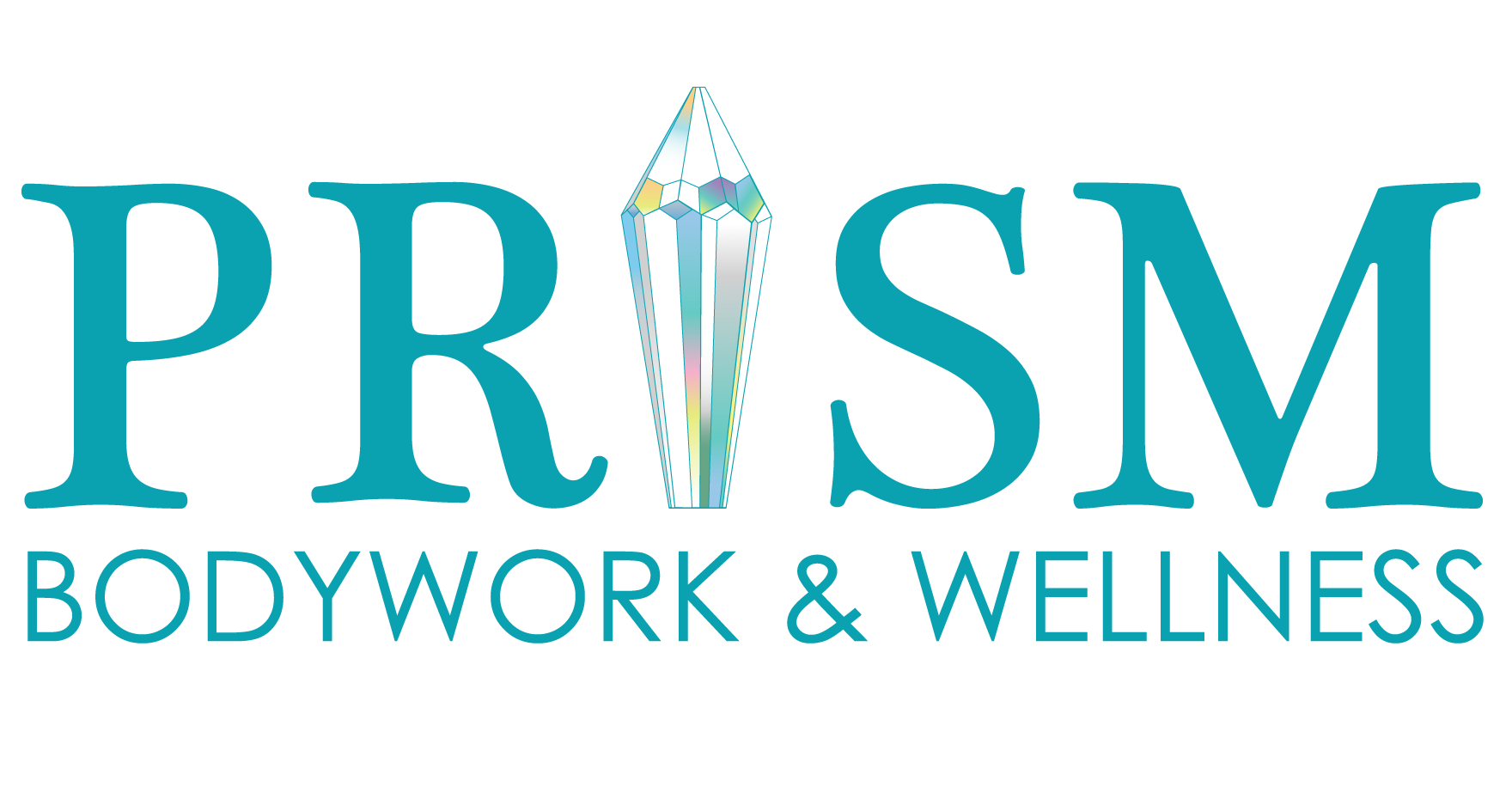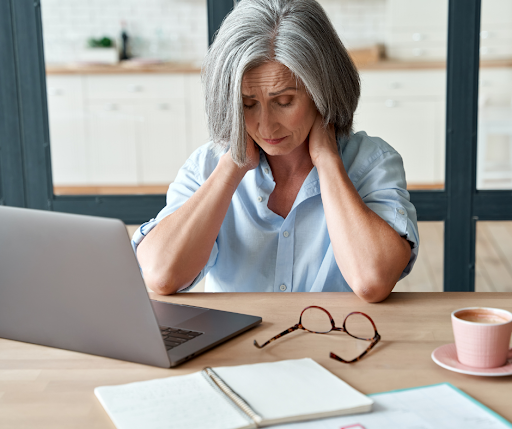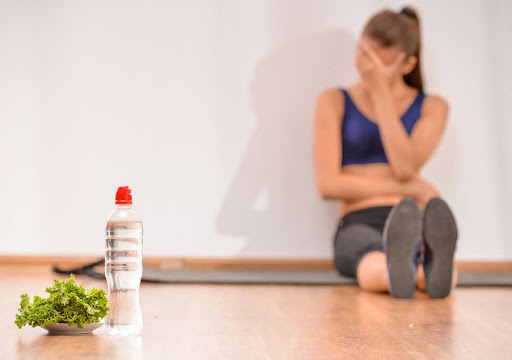The Silent Burden of Chronic Pain
Understanding the struggle of living in chronic discomfort
By Crystle Castle, BS, LMT, RMH.
Suffering in silence is the high price paid by those of us living with chronic pain. No matter what we do, complaining about it doesn’t help, and nothing seems to make it go away. So, we go about our daily lives, paste a smile on our faces, and muscle through.
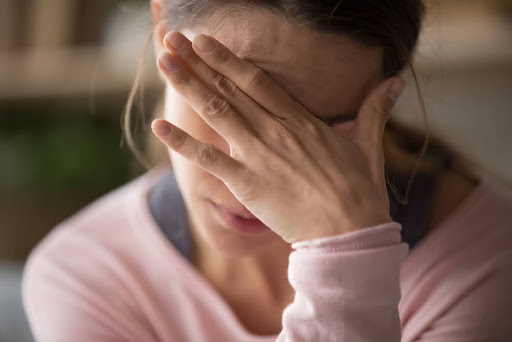
I Can’t Get No…Satisfaction
If you’re like me, you’ve tried everything, and likely racked up thousands of dollars in medical debt. Maybe you’ve exhausted the western medicine approach, and seen countless doctors, run scans, and taken enough blood draws to make the red cross envious, only to be let down with little or no answers.
Taking supplements like curcumin, reishi, or a zillion other herbs and tinctures for chronic pain relief hasn’t worked either. Pain pills may help, but the side effects are often worse than the relief they provide. Even surgery, which may have helped part of the problem, often still leaves us with a chronic pain that persists like that grating high pitched bark of our neighbor’s annoying dogs.
Maybe you’ve even tried holistic modalities like massage, acupuncture, chiropractic, physical therapy, yoga, meditation, and energy work, only to find that they take the edge off, but they haven’t been a cure.
Have you ever felt this way? You’re not alone!
Living with chronic pain is more common than you might think.
According to the CDC, during 2021, an estimated 20.9% of U.S. adults (51.6 million people) experienced chronic pain, and 6.9% (17.1 million people) experienced high-impact chronic pain.
Chronic pain is defined as pain lasting more than 3 months. It’s a long standing pain that persists beyond the usual recovery period or occurs along with a chronic health condition, such as arthritis. Chronic pain may be “on” and “off” or continuous.
High impact chronic pain is defined as “the presence of pain on at least half of days in the previous 3-6 months with substantial restriction of functional participation in work, social, and self-care activities.” (Duca et al., 2022).
That’s a whole lot of people who have to live day in and day out with a silent burden that, in a majority of cases, nobody else sees. 😐
Research has shown that chronic pain can affect people to the point that they can’t work, eat properly, take part in physical activity, or enjoy life. Rates of depression, anxiety, and suicide are higher for those who have chronic pain.
There can be all sorts of causes of chronic pain. Sometimes it starts with an illness or injury, from which you may have long since recovered from, but the pain remains. Or there may be an ongoing cause of pain, such as arthritis or cancer. Many people suffer with chronic pain in the absence of any past injury or evidence of illness. Often, this is referred to as “psychosomatic” pain.
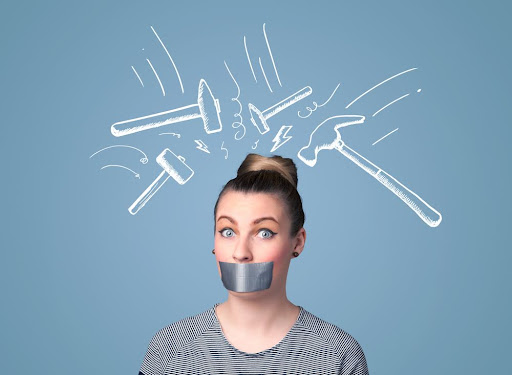
The Silent Treatment
Many of us never say anything about our pain. Usually, we don’t want to sound like we’re complaining. So, we keep our mouths shut and just try to tough it out. Over time, it’s something we get used to, like the ever present tick of the clock, day in and day out. We have to push our pain into the background and ignore it, or else we lose our minds.
Talking about our pain is tricky, because if we tell people about it, they may think that we’re being negative. Or, they say unhelpful things like, “Yeah me too,” or, “It could be worse.” They don’t understand that our chronic pain isn’t the same as the pain they feel because they twisted their ankle playing pickleball last week. And of course we know it could be worse! But that doesn’t make it any easier.

But, Have You Tried Kale?
If we do break our silence and open up about our chronic pain struggles, then come along our well meaning friends with a plethora of suggestions. 🙄
They’re sure that if we just attend a yoga retreat, or a crystal bowl sound bath, or snort tobacco up our noses and dance naked around a ceremonial fire, that our pain will be gone. They’re sure our chronic pain is just a made up spiritual ailment that’s manifested from our childhood trauma. If we can just do some ayahuasca, or stop eating sugar, or do a twelve day juice cleanse, they assure us our pain will be healed!
And you know what? THEY MAY BE RIGHT!
A lot of spiritual, nutritional, and holistic therapies DO help! I should know! I’m a massage therapist and holistic healer. I have seen countless people over the near twenty years of my work in this field have amazing results with these therapies.
I’ve helped so many people on their healing journeys, reducing not just physical pain, but spiritual and emotional pain as well. But I am not writing this article claiming that these therapies are the cure, or the end-all-be-all.
Many times changing our diet, getting outside in nature, and doing yoga and meditation can help to reduce our stress and toxic load, which can help to ease our pain. Getting a massage, an acupuncture treatment, or other forms of spiritual or holistic healing can INDEED reduce our pain symptoms and improve our mental and emotional health!
Quite often a healing touch from a skilled practitioner can do wonders for us. Having an emotional release, or just being with someone who sees us and acknowledges our pain can be vitally important to our wellbeing.
We know that these modalities promote relaxation, reduce stress hormones, and reset our nervous systems. The trouble is, once the relief wears off, for many of us the pain comes right back, leaving us feeling frustrated and hopeless.
That’s why, when our friends offer random suggestions to solve our pain, we can get irritated, even though we know they’re just trying to help. The truth is, many of them don’t know how long we’ve suffered, or how many things we’ve tried.
A friend of mine and I have a running joke “Have you tried kale?” to describe the plethora of well-meaning suggestions from clueless, but well meaning people who don’t understand the unbearable weight of the terrible burden that chronic pain brings.
They don’t understand the psychological toll being in chronic pain takes on us; the frustration of not being able to do the things we used to, and the mental gymnastics we have to perform to motivate ourselves to do basic things. They don’t get the exhaustion of being in chronic discomfort, having less energy because of the constant drain, or the frustration of seeing others take for granted the things we wish we could accomplish.
They don’t seem to get the vicious negative cycle of depression, insomnia, irritability, and weariness that chronic pain can play on us. It can affect our sex drive, our performance at work, or our ability to do simple, mundane tasks. Chronic pain is like an octopus whose tentacles reach out and affect every aspect of our lives.
They don’t know about the anxiety of lost income from having to take days, weeks, or even months off of work. They can’t comprehend the shame and blame we place on ourselves, the regret of wishing things could be different, or the guilt we feel for being unable to be truly present with our families. They have no clue about the helplessness we feel for having to rely on others, or the hopelessness of trying all sorts of remedies, but still feeling like there’s no end in sight.
Then a well meaning friend comes along with a random suggestion. “But, have you tried kale?” It seriously makes us want to lose our minds!
So what do we do about it?
The truth is, I DON’T KNOW! 😓 I wish I had all the answers, but there is no “one size fits all” approach.
I don’t know how to heal my chronic pain, but I’m trying. I try to maintain a positive attitude and take my health into my own hands. I actively try to reduce my stress and toxic load. I make my self care a priority. I get regular massages, chiropractic care, energy work, and acupuncture.
I ask for help when I need it. I take baths, meditate, visualize, get outside, and get moving. I sage myself, love myself, and do all the hippie woo-woo things. (I am a holistic healer, after all!) It all helps to take the edge off, keep me going, keep me healthy, and keep me in a positive mindset.
The truth is, some of us may have to accept that chronic pain is something we will always have. It may wax and wane, but it may never fully go away. Often, the best we can do is try to manage it.
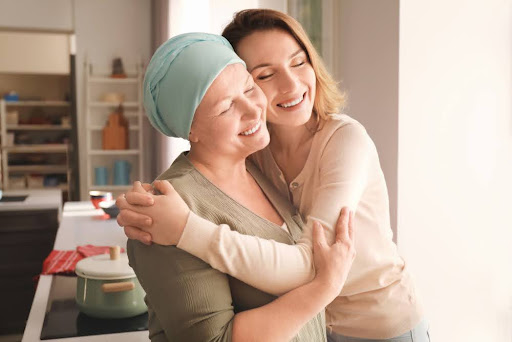
What Can You, a Well Meaning Friend, Do to Help?
For the love of God, PLEASE stop giving us unsolicited advice! If we want your advice, or recommendations, we will ask for it. Instead, give us comfort and reassurance. Most of us just want to be SEEN. Remember, we go day in and day out suffering in relative silence. When we do speak up, we just want to have our pain acknowledged. We aren’t always looking for you to try to solve our problem.
Sit with us, hug us, reassure us that while you may not understand, that you’re here to help. Ask us what you can do to make us feel loved and supported. Offer your friendship and empathy. Understand that we are trying our best, and we just want someone to see that. Sometimes, more than anything else, we just want a community who can hear us so we don’t have to carry the silent burden of our pain alone.
If you do feel that your advice or suggestions are important for us to hear, try saying something like “I have something to share that I think may help you. Let me know if you’re interested in hearing about it? If not, that’s ok too.” The less pressure, the better.
Living with chronic pain is a daily struggle. But it doesn’t have to be done alone. Having a community for support is crucial for maintaining mental health. Follow me on social media @prismbodywork to join my community of people like you who are seeking healing in body, mind, and soul.
Do you or someone you know suffer from chronic pain? Did this article resonate with you? Please leave a comment. I’d love to hear from you!
Related Posts
Join my 21 day cleanse for the new year!
My cleanse isn’t like others on the market, because I know you’re a WHOLE person. That means we need to address your mind and soul in addition to the body. Because let’s face it- if your MIND isn’t in the game, your body won’t follow. That’s why I’ve included ways to help you improve your spiritual,…
Read MoreRecovering From Surgery: What I Learned From Taking 6 Weeks Off Work
Most people underestimate the time they need to heal. We are so used to forcing ourselves to be ready when we’re not, so used to pushing the envelope to “get more done.” When my doctor recommended I take a full six weeks off for recovery after my upcoming surgery, I took him seriously, and that’s…
Read MoreRecovering From Surgery? Post-Op Massage Can Help!
People often ask me if post op massage is a good idea. I always advise that it’s best to ask your doctor, as every case is different, but in general, many people find that post-op massage increases healing time and aids in recovery. Why? Massage increases blood flow, aids in circulation, and improves the…
Read More